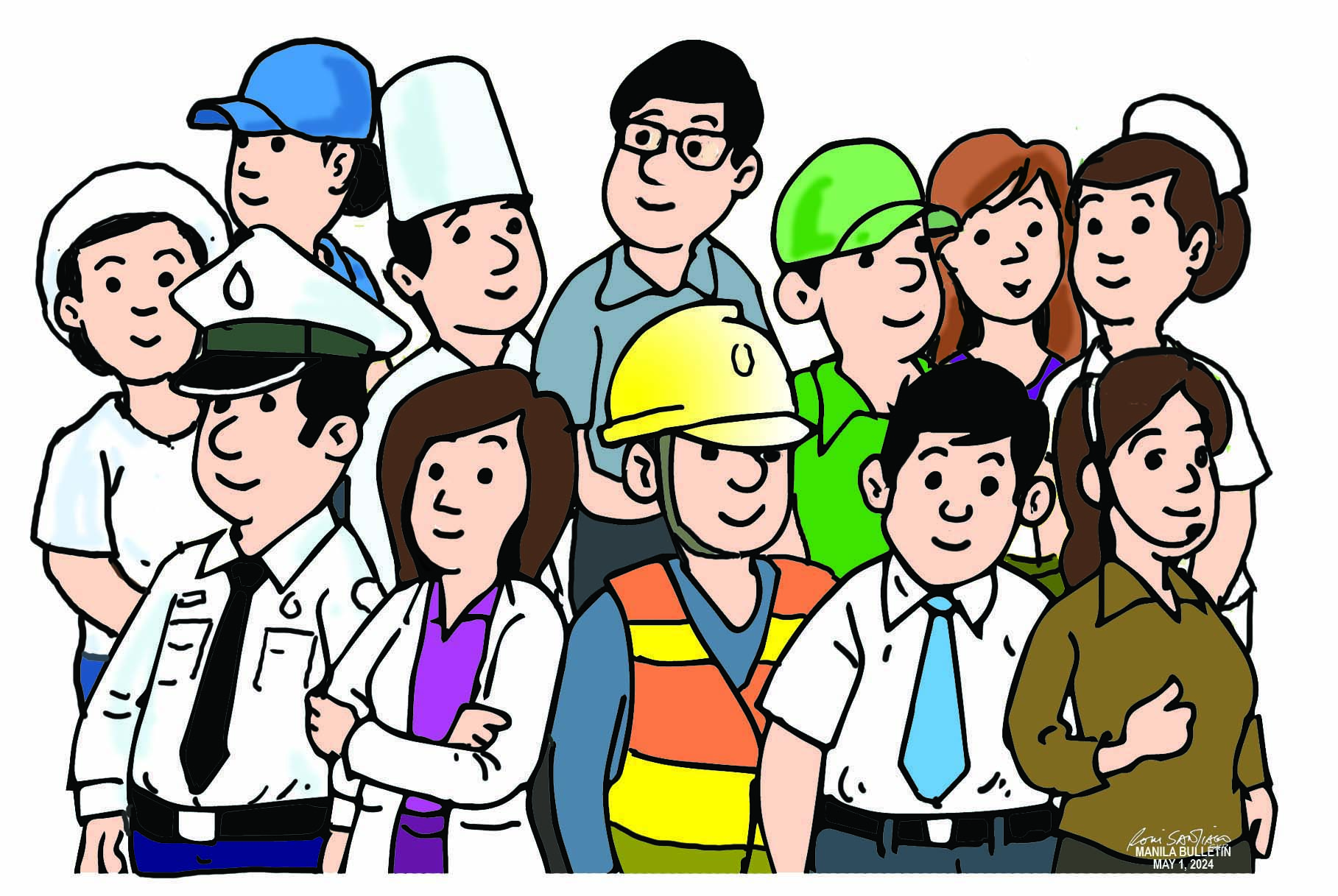
Today, as we celebrate Labor Day, let us take this opportunity to pay homage to the unwavering dedication of the Filipino labor force whose tireless efforts resonate everywhere — whether in the bustling streets of Manila, the verdant farmlands of Luzon, the vibrant markets of Cebu and elsewhere in the Visayas, the diverse communities of Mindanao, and even around the world. These unsung heroes, with sweat-soaked brows and calloused hands, weave the fabric of our nation’s progress.
There is no doubt the Filipino labor force is the backbone of the country’s economy. Millions of Filipinos wake up each day to toil in factories, offices, farms, and construction sites. Their labor fuels industries, drives innovation, and sustains economic growth. Without their collective effort, the wheels of commerce would grind to a halt.
Beyond the borders of the archipelago, the Filipino diaspora stands as a testament to sacrifice and resilience. Overseas Filipino workers (OFWs) leave their families behind, seeking employment abroad to provide a better life. Their remittances — sent back home with love — bolster our economy, fund education, and build homes. The labor force’s sacrifice transcends borders, binding families together across oceans.
In every barangay, the labor force shapes the landscape. They construct roads, schools, and hospitals — the very infrastructure that binds communities. Their sweat and determination forge bridges that connect distant islands, schools that nurture young minds, and medical facilities that heal the sick. The labor force is the silent architect of our nation’s progress.
When typhoons, earthquakes, pandemics, and other disastrous events strike, our labor force fearlessly faces them all. When calamity strikes, they rebuild shattered homes, clear debris, and restore hope. Their resilience is etched in the aftermath of disasters, where they rise from the rubble, hand in hand, rebuilding not only structures but also the spirit of the Filipino people.
Beyond bricks and mortar, the labor force preserves our cultural heritage. Artisans weave intricate textiles, craftsmen carve wooden statues, and farmers cultivate heirloom rice varieties. Their hands carry the stories of generations. They are the custodians of our identity.
Often overlooked, the labor force toils silently. They rise before dawn, endure long commutes, and return home weary but fulfilled. Their dreams are woven into the fabric of our nation—a child’s education, a parent’s healthcare, a better future. Their sweat mingles with the soil, nurturing the seeds of progress.
For all their contributions to nation-building, it is incumbent upon the state to extend full support to the country’s labor force. Supporting the Filipino workforce requires a multifaceted approach that addresses their needs holistically.
It is important for the state to strengthen and enforce labor laws to safeguard workers’ rights, including fair wages, safe working conditions, and protection against exploitation.
Another crucial step is job creation and diversification. Private sector investment should be encouraged to create more job opportunities. The economy should be diversified to reduce reliance on overseas employment and promote sustainable growth.
It is also important to invest in vocational training and skills development programs to enhance workers’ employability.
Another vital aspect of honoring the labor force is the expansion of social safety nets, including health insurance, maternity leave, and retirement benefits. Support for vulnerable groups, such as informal workers and seasonal laborers, is crucial.
Today, let us all honor the backbone of our nation — the hardworking Filipinos for their sacrifices, resilience, and their unwavering commitment to nation-building. As we celebrate their contributions, let us commit to building a society where every worker is valued, protected, and empowered.